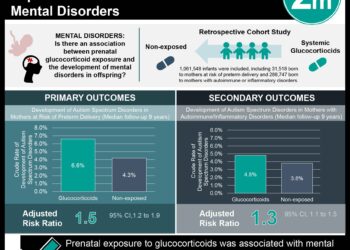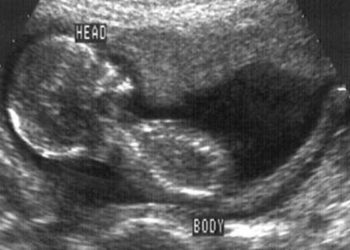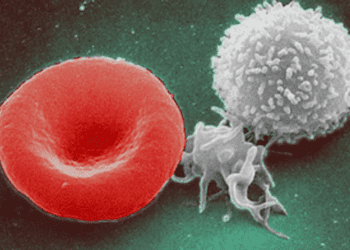Prenatal inflammatory markers associated with adverse neonatal outcomes
Image: PD
1. Markers of inflammation (clinical chorioamnionitis, maternal temp>38°C, histological chorioamnionitis) were all associated with adverse neonatal outcomes.
2. The association remained significant when stratified by gestational age at delivery.
Evidence Rating Level: 1 (Excellent)
Study Rundown: This study found that markers of prenatal inflammation, such as chorioamnionitis and maternal fever prior to delivery, were associated with adverse neonatal outcomes. Due to its large, prospective design, this study was able to stratify results by gestational age at delivery and thus expands on the existing literature. Results are limited in that they focused on a high-risk population for preterm birth. Reproduction of results in a population-based sample would solidify findings.
Click to read the study in AJOG
Relevant Reading: Anti-inflammatory interventions in pregnancy: Now and the future
Study Author, Dr. Jamie A. Bastek, MD, MSCE, talks to 2 Minute Medicine: Division of Maternal-Fetal Medicine, Department of Obstetrics and Gynecology, Hospital of the University of Pennsylvania.
“Prenatal exposure to inflammation dramatically increases the likelihood of adverse neonatal outcomes. If the markers we studied are late findings of prenatal inflammation, then our current management of tocolyzing women with preterm labor to deliver older neonates might prolong fetal exposure to prenatal inflammation, which may not be the most beneficial strategy to decrease neonatal adversity.”
In-Depth [prospective cohort study]: Researchers enrolled 871 women presenting with labor symptoms at 22 through 33 6/7 weeks gestation and followed them through delivery. Incidences of clinical chorioamnionitis, maternal temp >38°C with 24 hrs of delivery, histological chorioamnionitis and a composite adverse neonatal outcome (sepsis, respiratory compromise, seizures, necrotizing enterocolitis, intraventricular hemorrhage, or death) were assessed. Potential confounders including maternal age, race and corticosteroid use were incorporated into multivariate models.
The incidence of preterm birth (<37 wks gestation) was 42.0%. Clinical chorioamnionitis, maternal temp>38°C, and histological chorioamnionitis were all associated with increased risk of the composite primary outcome (p<0.001). Gestational age at delivery modified the association of both clinical (p<0.01) and histological chorioamnionitis (p<0.05). The effect of inflammation remained significant after stratification by gestational age (32, 36, and 40 wks).
By Maren Shapiro and Leah Hawkins, MD, MPH
More from this author: IUD contraception equally safe in teenagers as in older women, Black men less likely to receive follow-up for elevated prostate cancer marker, PSA, Intake of fish fatty acids associated with lower risk of breast cancer, USPSTF recommends chemoprevention for women at high risk for breast cancer, Insurance status affects treatment of early stage breast cancer, SERMs decrease breast cancer risk even after treatment
©2012-2013 2minutemedicine.com. All rights reserved. No works may be reproduced without expressed written consent from 2minutemedicine.com. Disclaimer: We present factual information directly from peer reviewed medical journals. No post should be construed as medical advice and is not intended as such by the authors, editors, staff or by 2minutemedicine.com. PLEASE SEE A HEALTHCARE PROVIDER IN YOUR AREA IF YOU SEEK MEDICAL ADVICE OF ANY SORT.







